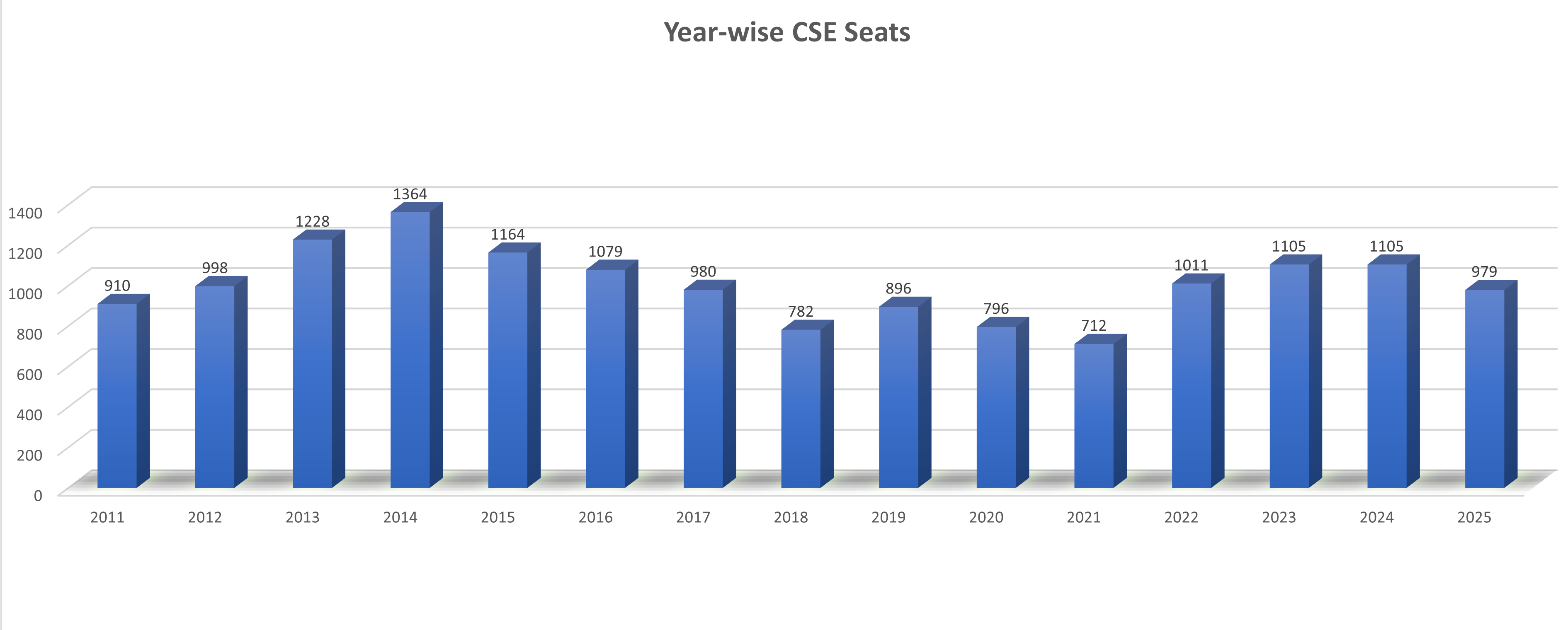 The data on year-wise seats for the Civil Services Examination (CSE) from 2011 to 2025 reveals significant trends that reflect the changing needs and strategies of governance in India. Below, we provide a detailed analysis of the data, identify key trends, and interpret their implications.
The data on year-wise seats for the Civil Services Examination (CSE) from 2011 to 2025 reveals significant trends that reflect the changing needs and strategies of governance in India. Below, we provide a detailed analysis of the data, identify key trends, and interpret their implications.
To visualize these trends effectively, the following graph provides a year-wise representation of the data:

Key Observations and Trends
- Increase and Peak (2011-2014):
- The number of seats increased steadily from 910 in 2011 to 1364 in 2014.
- This period marked the highest allocation, possibly reflecting a focus on strengthening administrative machinery during this time.
- Gradual Decline (2015-2021):
- From 2015 to 2021, the seats showed a general decline, with the lowest number of 712 in 2021.
- This could be attributed to policy shifts, administrative restructuring, or efforts to optimize resources.
- Recovery and Stability (2022-2025):
- Post-2021, the seats increased significantly, reaching 1011 in 2022 and stabilizing at 1105 in 2023 and 2024.
- However, there is a slight dip to 979 seats in 2025, indicating potential variability in requirements or changing recruitment policies.
Possible Implications
- Administrative Reforms:
- The fluctuations in seat numbers could reflect ongoing administrative reforms and changes in governance priorities.
- Resource Allocation:
- The drop during 2018-2021 might correlate with technological advancements reducing dependency on human resources for certain roles.
- Future Prospects:
- The recent stability in seat numbers suggests a more calculated approach to recruitment, balancing efficiency with administrative needs.
Conclusion
The year-wise analysis of CSE seats from 2011 to 2025 highlights a dynamic recruitment policy influenced by governance needs and administrative strategies. The consistent seat allocations in recent years suggest a stabilizing trend, offering a relatively predictable scenario for future aspirants. Aspiring candidates should consider these trends while planning their preparation, as they provide insight into the competitive landscape.
